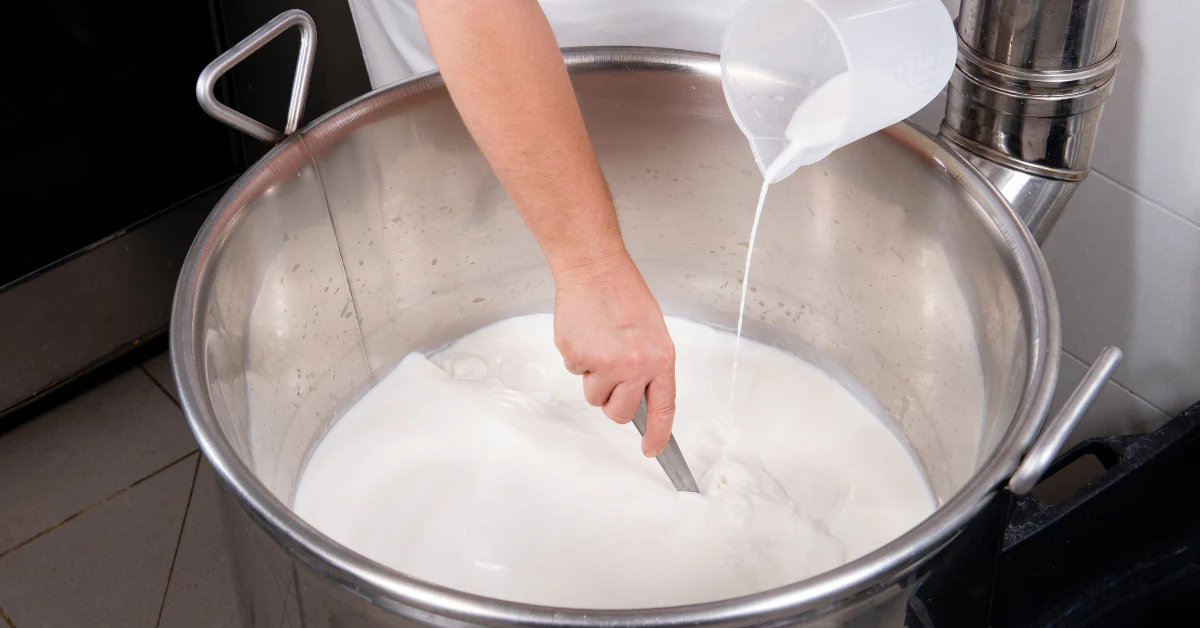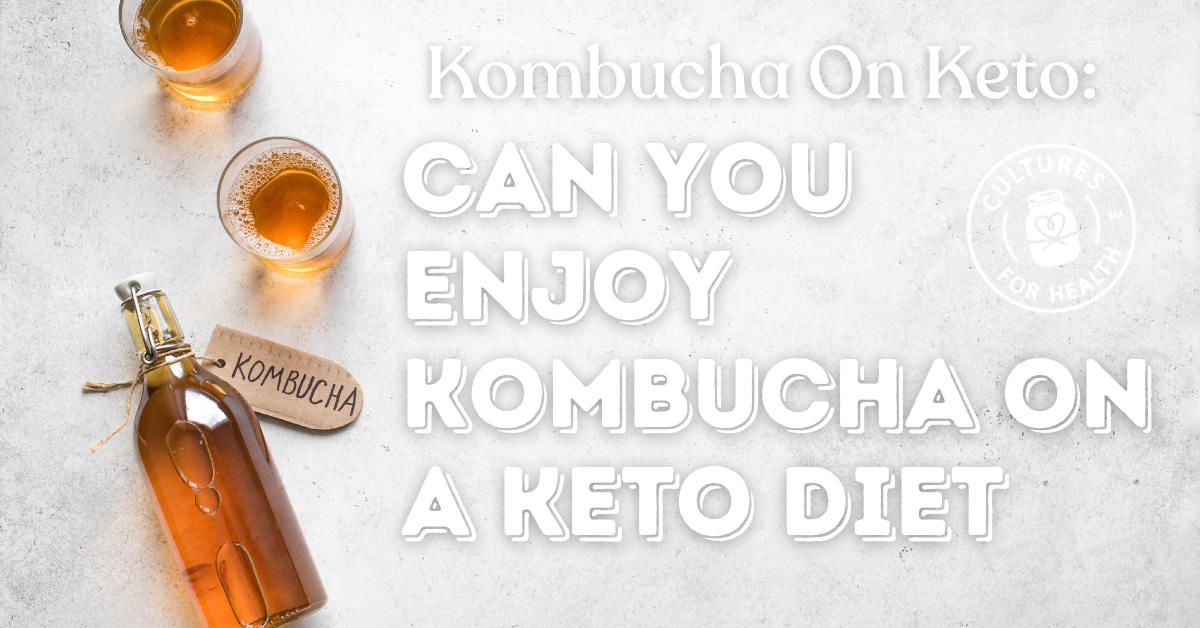
If you’re a cheese lover, you have likely heard the word “rennet” (REN-ut) being used quite often. It is a substance that constitutes an essential part of the cheese-making process for many kinds of cheese.
However, you may have some additional questions. For instance, what is rennet, what is rennet made from, and is it safe for vegetarians? Let’s dive into the answers and learn more about this cheese-making substance.
What Is Rennet?
To put it simply, rennet is a substance traditionally made up of a combination of enzymes from the stomachs of young ruminant animals like goats and calves. In addition, microbial and vegetable rennet exist, and can also be used in cheesemaking.
Rennet is such a vital part of the cheesemaking process because of its ability to coagulate the proteins in the milk, also known as curdling. This provides a way to separate the liquid parts of milk from the solids.
If you’re planning to make most hard cheeses, such as mozzarella, parmesan, or cheddar cheese, you will need to use rennet. Traditionally, soft cheeses like ricotta and cream cheese don’t use rennet, but increasingly there are non-rennet options for other cheeses like Swiss and provolone.
What Is Rennet Made From?
There are a couple of different places that rennet comes from. There’s a traditional method that’s been around for centuries, but there’s also some really cool science that has enabled us to greatly expand our supply of rennet.
How Do You Get Rennet?

Animal Rennet
Animal rennet is obtained from the stomach lining, or mucosa, of a ruminant’s abomasum. This is one of the four stomach chambers that ruminants have. The reason why rennet specifically has to be derived from young animals is that these enzymes are only found in ruminants that are still on a diet of milk.
The traditional method of harvesting animal rennet involves dicing the stomach, which has been cleaned and dried, and soaking it in whey or salted water. In some instances, vinegar or wine can be added to the mixture. After a few days, this can be filtered, and what is left over is the animal rennet.
The traditional method might have been how rennet was originally created, but it has largely been replaced by a more modern process. The stomachs are deep-frozen, turned into powder, and then put in a special solution. Acid is added to activate the enzymes, a job usually done by stomach acid, and then the acid is neutralized. After being filtered many times, animal rennet extract is what is left.
Plant Rennet

Plant or vegetable rennet serves as an alternative to animal rennet, though it performs differently. Several plants can be used to coagulate milk, instead of using young animals.
Plant rennet can be produced from plants like nettles, thistles, ground ivy, dried caper leaves, figs, and artichokes, among others.
Some people make plant rennet at home.
Microbial Rennet
Microbial rennet is one of the most popular types of rennet used in cheesemaking today. It is essentially rennet that is produced by microorganisms such as fungi, yeast, or mold. It may also be referred to as fermentation-produced chymosin (FPC). You may also see it called microbial vegetable rennet, despite no plants being used for it.
Using scientific advances, these microbes are genetically modified with the same genes that produce the specific enzymes in the stomach of a ruminant animal. This results in microorganisms that produce rennet just like animal rennet, but it is safe for vegetarians.
Over 90% of cheeses made commercially are now produced using FPC as opposed to animal or plant rennet. There are also some molds that naturally produce enzymes that can be used for curdling milk, though these are not used as commonly.
Which Rennet Is Best?

Due to the different compositions of plant and animal rennet, the various rennet options impart different effects on the cheeses as they’re created and aged.
Animal rennet is usually preferred when making longer-aged cheeses, as well as hard cheese. This is because in addition to chymosin, animal rennet also contains pepsin, which helps to further break down the proteins while the cheese is stored.
Vegetable rennet is a good choice for softer cheeses, though it is not usually the favorite for long aging, as it may acquire a bitter taste in cheeses aged longer than six months.
Rennet can be purchased in different forms for cheesemaking, such as rennet tablets, powder, or liquid rennet. The liquid is generally the easiest to use, but the tablet and powdered forms usually have a longer shelf life.
Can Vegetarians Eat Rennet?

Since typical animal rennet is derived from animal organs, it obviously cannot be eaten by vegetarians. However, plant or microbial rennet is an acceptable replacement to use for vegetarians who enjoy a good cheese!
Why Is Rennet Not Vegetarian?
The reason why animal rennet is not a vegetarian substance is that while it is derived from animals, it cannot be extracted from live animals. The animals involved in producing animal rennet need to be slaughtered before their stomachs can be used to harvest rennet, which obviously makes it not vegetarian.
FPC serves as a great alternative that is vegetarian-friendly. Microbial rennet is generally considered both kosher and halal. Microorganisms are the only things involved in its production, of which most are fungi or mold.
How to Know if Cheese Uses Vegetarian Rennet?

If you’re vegetarian, or know vegetarians who might eat cheese you buy, it is understandable that you may want to be aware if it is vegetarian-safe or not.
While the Food and Drug Administration does not have a strict requirement for cheesemakers to say which kind of rennet they use in their cheese, the label will typically give a hint about this if it is not spelled outright.
“Traditional” rennet tends to refer to animal rennet. Plant-based rennet will usually have a reference to the specific plant used, like “thistle” rennet.
However, if you buy from a local cheese shop, the sellers are likely to be knowledgeable. Just ask them and you’ll most likely provide an informative answer on which cheeses are or aren’t suitable for vegetarians.
Use the Rennet That’s Best For You
At the end of the day, no rennet is objectively better than the others. It all depends on your needs and the kind of cheese that you’re trying to make. Just grab a cheese making kit and choose the rennet that is best for you!
















